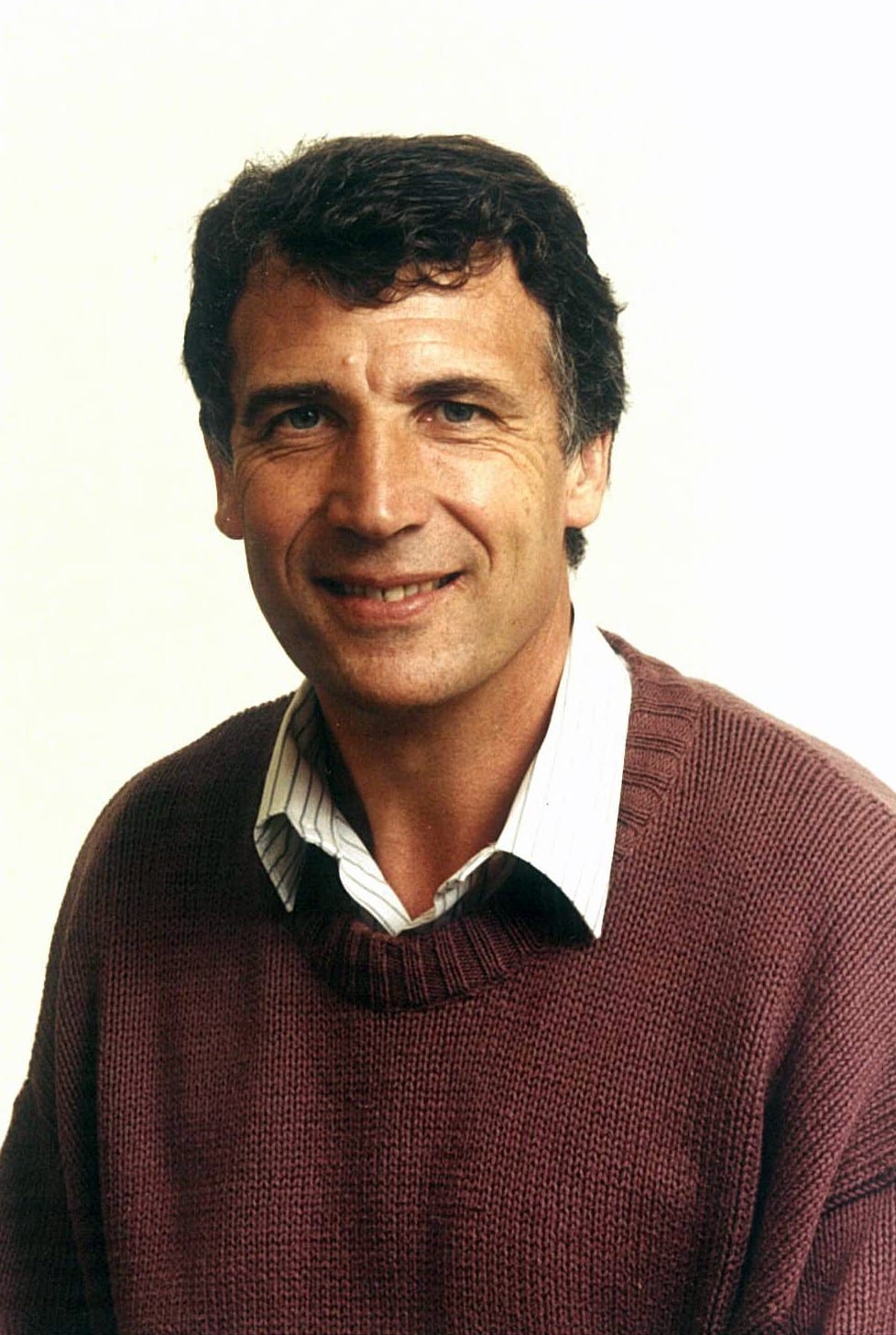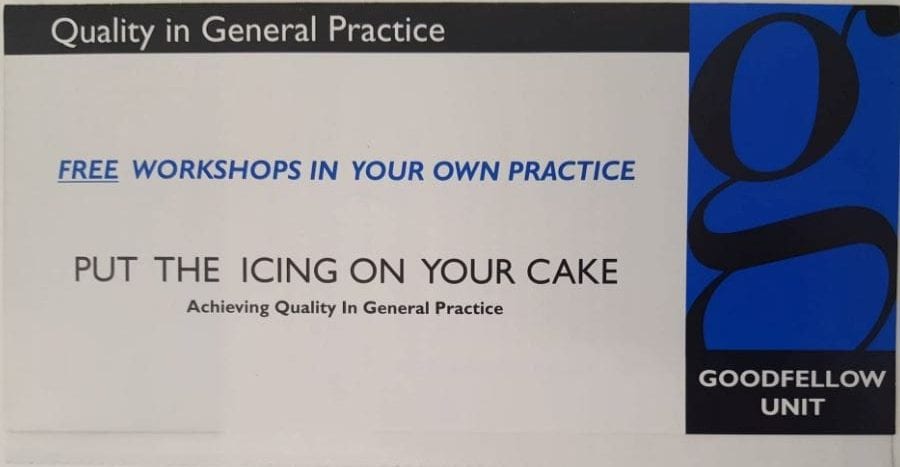In the early-1990s, the Goodfellow Unit also became responsible for regulating the quality of general practices by hosting the Royal College Quality Assurance Unit.
In 1992, Drs Phil Barham and Jocelyn Tracey appointed Dr John Wellingham as the Quality Unit Director. Like most other Goodfellow Unit staff at that time, he was on a part-time contract alongside his clinical work. Dr Wellingham had completed his medical training at St Bartholomew’s Hospital in London. He moved to Wellington in 1976 and worked alongside Professor Tom O’Donnell for one year, and then gained work experience in Australia and Canada, as well as in Sweden where he undertook his exams for Membership of the Royal Colleges of Physicians of the United Kingdom. He returned to New Zealand in 1980 to work in a general practice on Auckland’s North Shore.
Dr Wellingham started to attend the Goodfellow Unit courses shortly after he returned to New Zealand in 1980. He had not specifically trained in general practice and remembered participating in every course he could attend for the first six years. He remembered that the courses emphasised ‘group learning and group gain’ and there was ‘enormous respect between the people involved in leading it and the people involved in supporting them and the people who were coming along to learn’.1 John became increasingly involved with the Goodfellow Unit from the late-1980s when he accepted invitations from Phil Barham and Jocelyn Tracey to participate in informal planning sessions for upcoming courses. He recalled,
Phil would call in a group of people, and I’d go and join them some of the time, and he’d say, ‘What are the issues in general practice? What are we going to do next?’ Not ‘the system level measures show that you’re performing poorly in this area and we need to sort it out’. Completely different. And that inspires people to share and to learn. And they learn because they’re passionate about doing it well. Then learning isn’t a strain, it’s a hobby. 2

Dr John Wellingham staff photo
Phil Barham’s style of engagement with GPs, especially his emphasis on co-designing sessions, influenced the operation of the Quality Assurance Unit. By the time they established the Quality Assurance Unit, the Goodfellow staff had already set a precedent of ‘essentially working with general practitioners across the board to find out what they needed and supplying that’.
John’s enthusiasm for a process of quality assessment also reflected his prior experiences of establishing a private general practice clinic before he joined the Goodfellow Unit. He did so at a time when ‘there was no good reference to what a good clinic was, what systems they needed, whether we were safe, to a certain extent whether we were up to date’.

The Quality Assurance Unit offered individual and group workshops to GPs
With funding from the Regional Health Authorities, John and two colleagues surveyed forty to sixty practices from Hamilton to Whangarei to explore the main issues the practices faced and to develop potential solutions to these problems. They produced reports for the practices, submitted the findings to the Regional Health Authorities, and held short courses on some of the key issues they found and the options for improvement.
Their work became especially formalised from the mid-1990s. In 1996, the Goodfellow Unit conducted an extensive literature review to determine a set of ‘Key Performance Indicators’ in general practice. The Royal New Zealand College of General Practitioners adopted these indicators and produced the first set of national standards for quality in general practice in 1999, titled Aiming for Excellence.3 Quality assurance gained momentum across this period and in 2000, the Goodfellow Unit Quality Group delivered four workshops to 150 practice managers. They continued to developed resources including occupational health and safety and legal issues, among other topics, to sell to GPs.
John Wellingham on the Quality Assurance Unit
From the early 2000s, the RNZCGP continued to develop the project with an emphasis on accreditation for general practices. They established the CORNERSTONE General Practice Accreditation Programme in 2004, which is the current RNZCGP assessment programme for general practices that use the Aiming for Excellence standard for quality improvement.
These early contracts set the groundwork for the expansion of the Unit over the following decades. Since the late-1990s, the number of contracts the Goodfellow Unit has received to provide further training for GPs, practice nurses, and others working in primary health care has grown exponentially. Some of the major contracts the Goodfellow Unit has received include ones from the Health Authority to offer training and support to rural doctors in 2000, from ACC to develop web-based case studies and formative quizzes in 2008, and from Pharmac to produce educational videos, webinars, podcasts and Gems in 2016. They have also received contracts to train health care workers on managing patients with opioid dependency, on problem gambling, and to hold workshops with mental health staff in Northland about managing addictions, among others.
